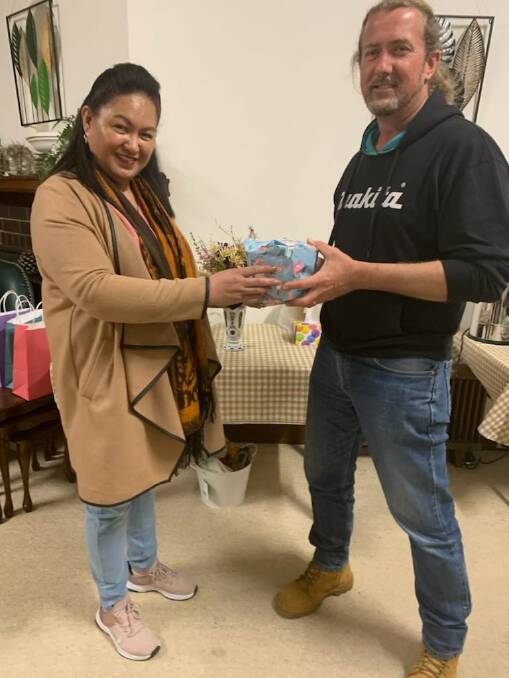Steve Corkery of Stephen Corkery Horticultural was the guest speaker at the September Young Garden Club meeting.
Subscribe now for unlimited access.
or signup to continue reading

Steve has been involved in gardening since he was very young. His father had a nursery in Edward Street. He himself also worked in a garden in Sydney prior to working for the Young Council "Parks and Gardens" for thirty (30) years During that time the Chinese Tribute Gardens were established as was the Carrington Park Garden. Seven years ago Steve went into business for himself and now has six (6) employees and 260 customers. His business offers all garden work including lawns, trees, slashing, mowing, pruning, weeding as well as whatever else is needed for garden maintenance.
He, his wife and three children live in Young on a five acre property at the Wombat Road. He referred to technology and modern gardening as "bulldozing", causing damage to the soil and the environment. In other words growing food and plants the industrial way has devastated the climate and the planet.
Steve's wife studies and is passionate about Microbiology and the microbial life in the soil. Using her knowledge regarding the connection between soil health and human health she produces healthy nutritious vegetables, fruit and other edible plants. They both believe in working with the soil and making sure it is healthy. Steve encourages composting and mulching, which increases productivity and the health of plants as well as the number of essential microbes.
Asked what he does if clients want him or his workers to use sprays, Steve said that he would use "Slasher", which is not as harsh as other chemicals.
The soil is made up of several layers called Horizones. The first layer is what we call the Top Soil. It is a mixture of sand, silt, clay and humus. Humus is rich, highly decomposed organic matter mostly made up of dead plants, crushed leaves, twigs and dead insects. In this top layer is where very many small animals like earth worms, moles, insects, bacteria and fungi live. They break down the material in the soil into nutrients for the plants and trees. Worms are especially important because they dig through the soil and give the plant roots places to grow and make spaces for water and air to get in the soil.
Loam is the ideal soil for most plants. It has a balance of the three mineral particles that are needed (nitrogen, phosphorous and potassium), and is rich in Humus. Loamy soil also has a heathy balance of sand, silt and clay. It holds plenty of moisture and drains well so enough air can reach the roots.
Microbiology is the study of all living organisms that are too small to be seen with the naked eye. Garden Microbiology is an essential part of all gardening. From large commercial farms to backyard vegie patches. It is most important for producing delicious nutrient- rich food.
So garden Microbiology is a combination between roots, soil and microbes. The three are needed to work together for a successful growing process. The microbes to help breakdown and absorb nutrients. So whatever we put on the soil, like plant material, compost, mulch or fertiliser is broken down by microbes and then absorbed into the plants. The nutrients the plants absorb are passed to us when we eat them.
It is easy to see that what we put into the soil is of the utmost importance for keeping it and us healthy. The connection between soil health and human health is undeniable.
The next garden club meeting will be held on Wednesday the 5th of October. The venue is 27 Campbell Street. The guest speaker will be Glynis Buck. Glynis is an experienced Horticulturist and Garden Designer. She will be talking about her work and showing slides of gardens that she has designed.
Everyone is welcome to come and join us in " Friendship Through Gardens".
For information contact Moya on 0413 853 642 or Helenie on 0427 710 777.
Helenie Carmody - Young Garden Club Publicity Officer

